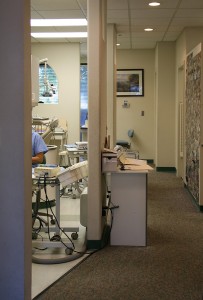
Choosing the business entity structure for your dental practice is a decision that will have long-term ramifications for you personally and professionally. While most corporations are classified as C corporations, many dentists choose to incorporate their businesses as an S corporation. With a C corporation, both the shareholders’ dividends and the corporate profit are taxed. This is not the case with an S corporation.
A dental CPA from Reliance Consulting, LLC, can help you and your partners, if you have them, determine the best business structure for your dental practice. It might be that a limited liability corporation (LLC) structure is best, or a sole proprietorship, or partnership. If you are just starting out and you are on your own as a business owner-operator, an S corporation might be the way to go. A new hybrid structure that combines the asset protection benefits of a LLC and tax benefits of S Corporation has been very popular among professional service firms. While it is important to have an efficient tax structure, it is also important to protect you and your practice from lawsuits. Striking the perfect balance between asset protection and tax optimization is key to your dental practice.
As mentioned, an S corporation structure helps the business owner avoid the “double taxation” that occurs with a C corporation. In an S corporation, the company’s income or loss is divided among the shareholders and it is reported on personal tax returns. According to the IRS, the following criteria apply in order for a business entity to qualify to become an S corporation:
- The company must be based in the United States.
- The shareholders cannot be partnerships, corporations, or non-resident aliens.
- There must be no more than 100 shareholders.
- There must be only one class of stock.
While no two businesses are exactly alike, a dental CPA from Reliance can apply a set of proven strategies for dental practice management to your particular circumstance. We will take the time required to truly understand your organizational strengths, your short-term goals, and your long-term goals. It might be that an S corporation is simply not right for you, or it could be a precise fit for your goals and business needs. Changes in tax code could tilt the balance in favor of another preferred entity type. At Reliance, we continuously monitor developments in Washington and the proposed laws as they move up various committees in Congress. This monitoring allows us to conduct scenario analysis of various tax strategies that might be most optimal in the short and the long-run.
The only way to know for sure is to contact Reliance today and receive our expert assistance with determining the best structure for your business, or with anything else regarding dental practice management in the Tampa Bay area.












